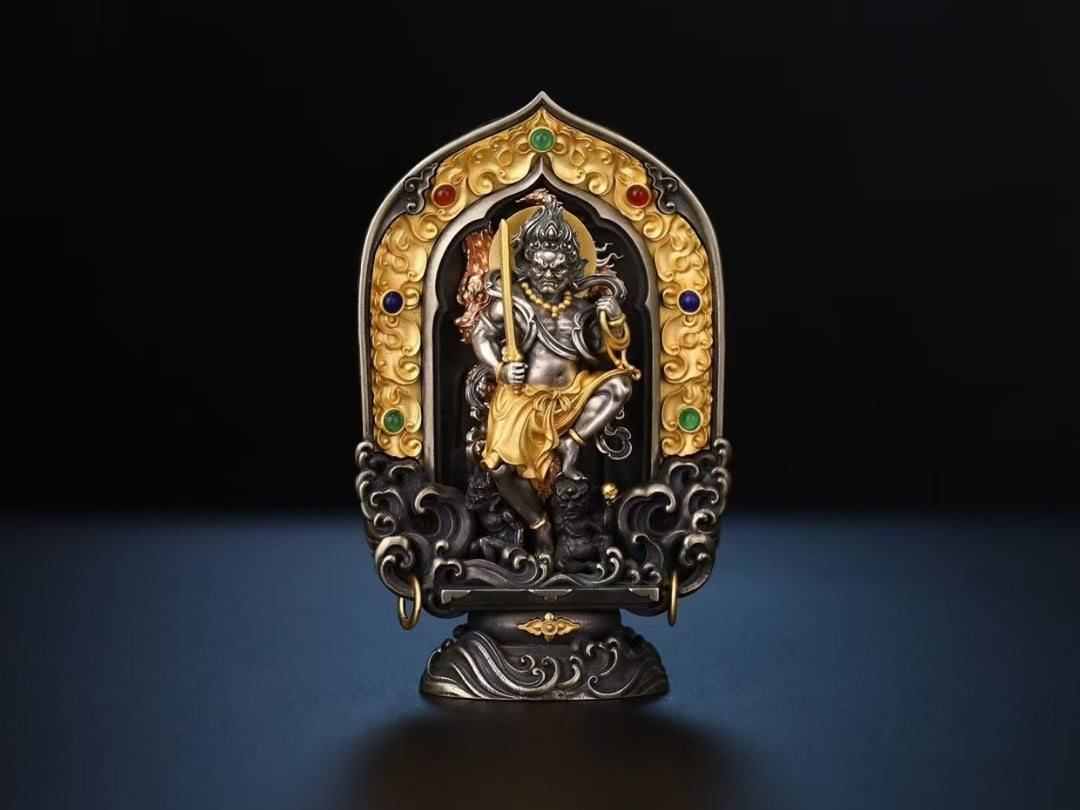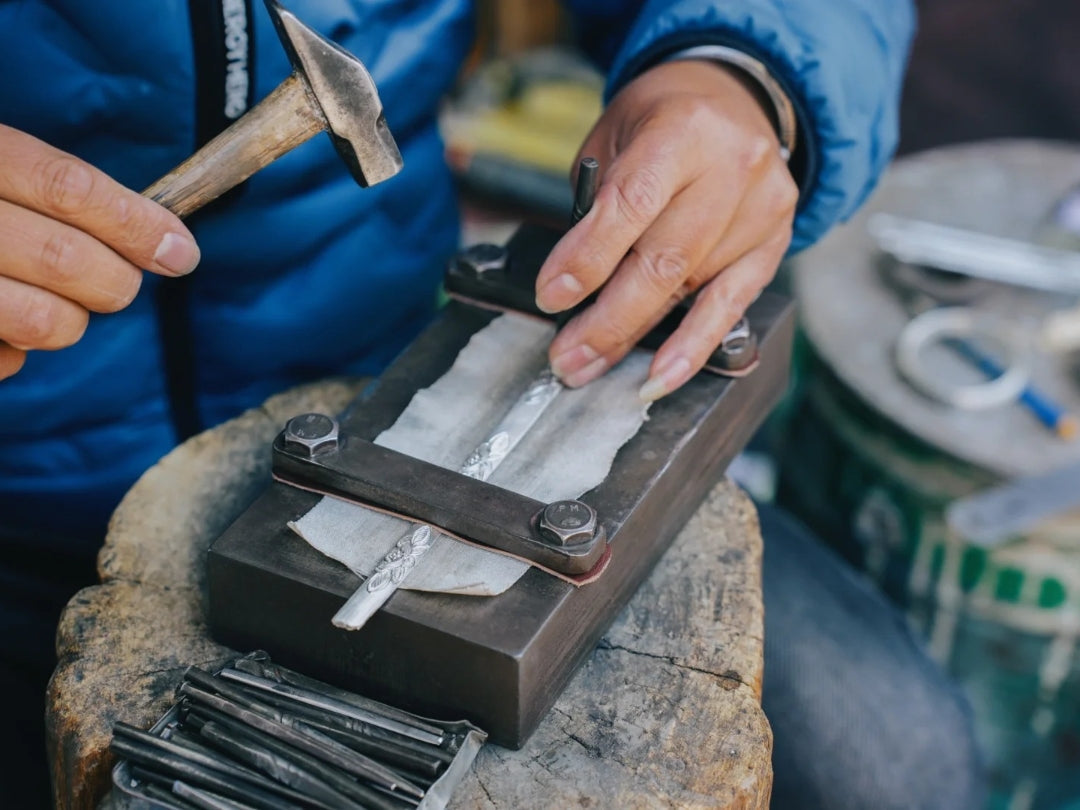Artisans who create Thangka pendants masterfully miniaturize centuries-old painting techniques into pendants smaller than five centimeters. From mixing mineral pigments like malachite and cinnabar to carefully applying 24-karat gold leaf, each micro-shrine undergoes a meticulous, multi-step process. Wearing these tiny works of portable devotional art not only carries Tibetan Buddhist heritage close to your heart but also provides a tactile anchor for daily moments of mindfulness.
The Art of Miniaturization
Preparing the Mini Canvas
-
Gesso Layer: Artisans begin by sizing a metal or fine cotton base with a thin layer of gesso—a mix of animal glue and calcium carbonate—to create a smooth, absorbent surface.
-
Marking the Outline: Using a fine brush, they sketch the central deity or mandala circle, equally dividing the tiny space (often under 50 mm in diameter) into compositional zones.
Crafting Mineral Pigments
-
Malachite Green: Ground into powder, then mixed with hide glue for a vibrant green hue.
-
Cinnabar Red: Traditionally sourced and detoxified before being finely milled into the signature Thangka red.
-
Layering Technique: Colors are applied from lightest to darkest, allowing each layer to dry under low heat—sometimes over 24 hours—to prevent cracking in such a confined space.
Gold-Leaf Application at Micro Scale
-
Sizing with Adhesive: A diluted nodoshi (natural tree-sap) adhesive is applied exactly where gold leaf is intended.
-
Laying the Leaf: Using a squirrel-hair brush, artisans place ultra-thin gold leaf even thinner than standard Thangka work.
-
Burnishing & Detailing: Once set, the gold is gently burnished with a smooth stone, then etched with microscopic tools to add filigree lines or tiny script mantras.
Step-by-Step Creation Gallery
-
Canvas Prep: Metal disc pre-gessoed and sanded smooth.
-
Outline Sketch: Tiny deity form penciled in.
-
First Pigment Pass: Base colors fill backgrounds.
-
Detail Layers: Facial features, hands, and iconographic elements.
-
Gold Accents: Leaf placement around halo and jewelry.
-
Final Varnish: Natural resin seals and protects for wear.

Micro-Shrines as Mindfulness Tools
-
Tactile Ritual: Feeling the pendant against your chest or fingertips can refocus scattered thoughts.
-
Visual Cue: A quick glance at the tiny mandala or deity reminds you to return to your breath.
-
Daily Presence: Unlike larger statues, these “mini-Shrines” travel everywhere with you—on the commute, at work, or during the evening tea ritual.
Conclusion
Tiny Thangka pendants distill the grandeur of Tibetan Buddhist art into everyday wearables. Through centuries-old pigment recipes, gold-leaf mastery, and microscopic precision, each pendant becomes a portable devotional art piece—connecting you to tradition while anchoring your modern mindfulness practice.




